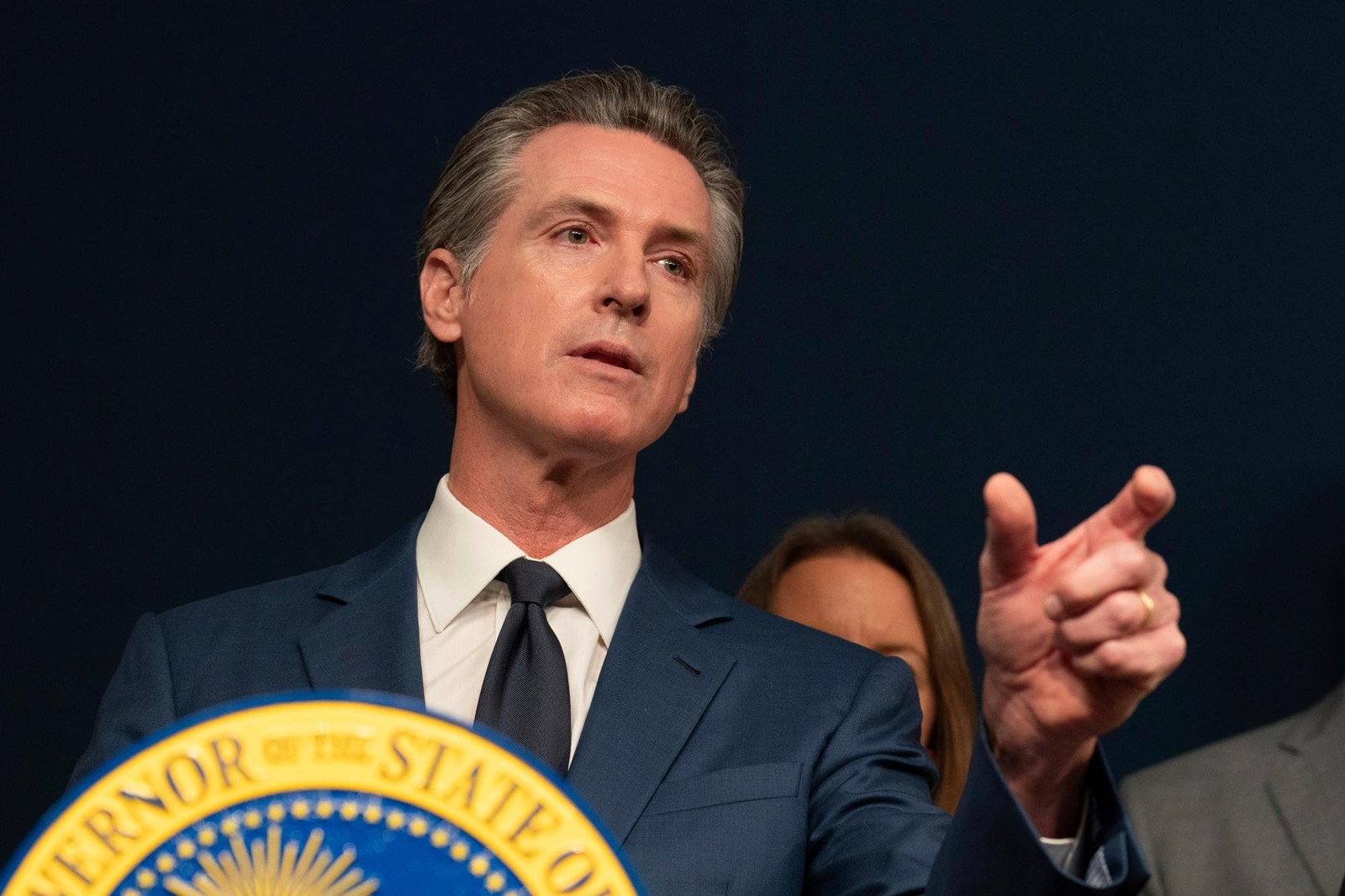
In navigating the gauntlet of bills from the California Legislature, Gov. Gavin Newsom largely rejected legislation that would have created more state spending in a budget deficit year. Instead, Newsom signed bills that will force new mandates on big private sector companies. He’s initiated a focus on new government requirements to increase certain minimum wages and expand climate change monitoring, as two examples.
But after five years of budget surpluses, Newsom appears to be ending an expansion of government with budget deficits looming in coming years. These actions may give the impression that Newsom, perhaps driven by national political ambitions, is moving to the center politically. The governor did, after all, veto bills to distribute condoms in high schools and to legalize the recreational use of psychedelics. Don’t be fooled.
It is the Legislature that is continuing to shift to the leftward, creating a political/optical illusion that it is Newsom who is evolving into something new. He’s not. What we’ve seen is the same old Newsom politely saying no to decidedly liberal Democrats.
In numerous veto messages, Newsom echoed the same line about fiscal restraint when it came to the state budget. In vetoing a bill that would have granted free driver’s licenses to the state’s homeless population, for example, Newsom stated: “This year, however, the Legislature sent me bills outside of this budget process that, if all enacted, would add nearly $19 billion of unaccounted costs in the budget, of which $11 billion would be ongoing. With our state facing continuing economic risk and revenue uncertainty, it is important to remain disciplined when considering bills with significant fiscal implications, such as this measure.”
Sticking it to business
The highest-profile spending veto was his rejection of expanding unemployment benefits in California to striking workers, noting that the state’s unemployment insurance fund is running a $20 billion deficit. He even used the concern about fiscal restraint to reject modest-cost bills, such as a proposal to establish an ombudsman to ensure that the state was fully responding to requests for public records.
The same governor did not seem concerned about sticking it to companies. In an announcement during an international climate conference designed to maximize attention, Newsom approved a bill that will require the billion-dollar companies doing business in the state to quantify the global emissions of their activities, including subcontractors, and even pay the state’s cost to administer the program. Newsom also mandated a larger group of big companies, those doing at least half a billion dollars worth of business, to assess their climate-related financial risks and report the information to the state at their cost as well.
Fast food workers, meanwhile, will see their wages rise to $20 an hour over time. Certain healthcare workers will see pay bumps reaching $25 an hour as well.
All these endeavors, arguably worthwhile, will be underwritten by the paying public in one way or another. It just won’t come directly out of the state budget.
Meanwhile, it appears to be the unwritten duty of the left-leaning legislators to test the governor with bills that could shift him further in their direction. Generally, Newsom resisted.
The governor rejected a proposal that would have decriminalized those riders of public transit who simply don’t pay. In maintaining his focus on school curriculum and related culture wars, he rejected the idea of expanding the role of public high schools to distribute free condoms.
His position on mushrooms proved to be decidedly mixed. He went along with the Legislature’s desire to designate select flora and fauna as official, in this case making the California golden chanterelle the official state mushroom. But he rejected a bill to decriminalize small quantities of certain psychedelic mushrooms for adults.
Instead, Newsom urged the Legislature to consider a bill to develop therapeutic guidelines instead.
Heartless veto
If there was a notable moment of inconsistency with Newsom and his bill-signing ways, it was with children and needed health care.
He signed a bill ensuring that 12-year-olds get the mental health services that they need. But he vetoed a bill that would have secured affordable hearing aids for newborns that need them. Newsom refused to require insurers to cover the devices even though 32 states already do. Given that only one thousand or so newborns face this potentially devastating condition every year, this amounts to a speck of dust in the state budget. But Newsom worried that signing the bill would somehow lead to the state facing “millions to billions of dollars in new costs to cover services relating to other health conditions.”
That is a rationale that avoids the bill on its actual high merits. This was a curiously heartless move for little financial reason from a governor with his own disability in dyslexia. Legislators who have repeatedly and unanimously sent this bill to governors should continue until one gets it right.
Newsom emerges from the year’s legislative process without damaging himself on the national stage. He didn’t make his life harder at home in Sacramento. But in making life more expensive and cumbersome for every major company that does business in the state, Newsom chose to alienate this important constituency in a big way. A few headlines were clearly more important than some chronic ire of countless corporate executives.
Tom Philp is a Sacramento Bee columnist. ©2023 The Sacramento Bee. Distributed by Tribune Content Agency.


 PREVIOUS ARTICLE
PREVIOUS ARTICLE
